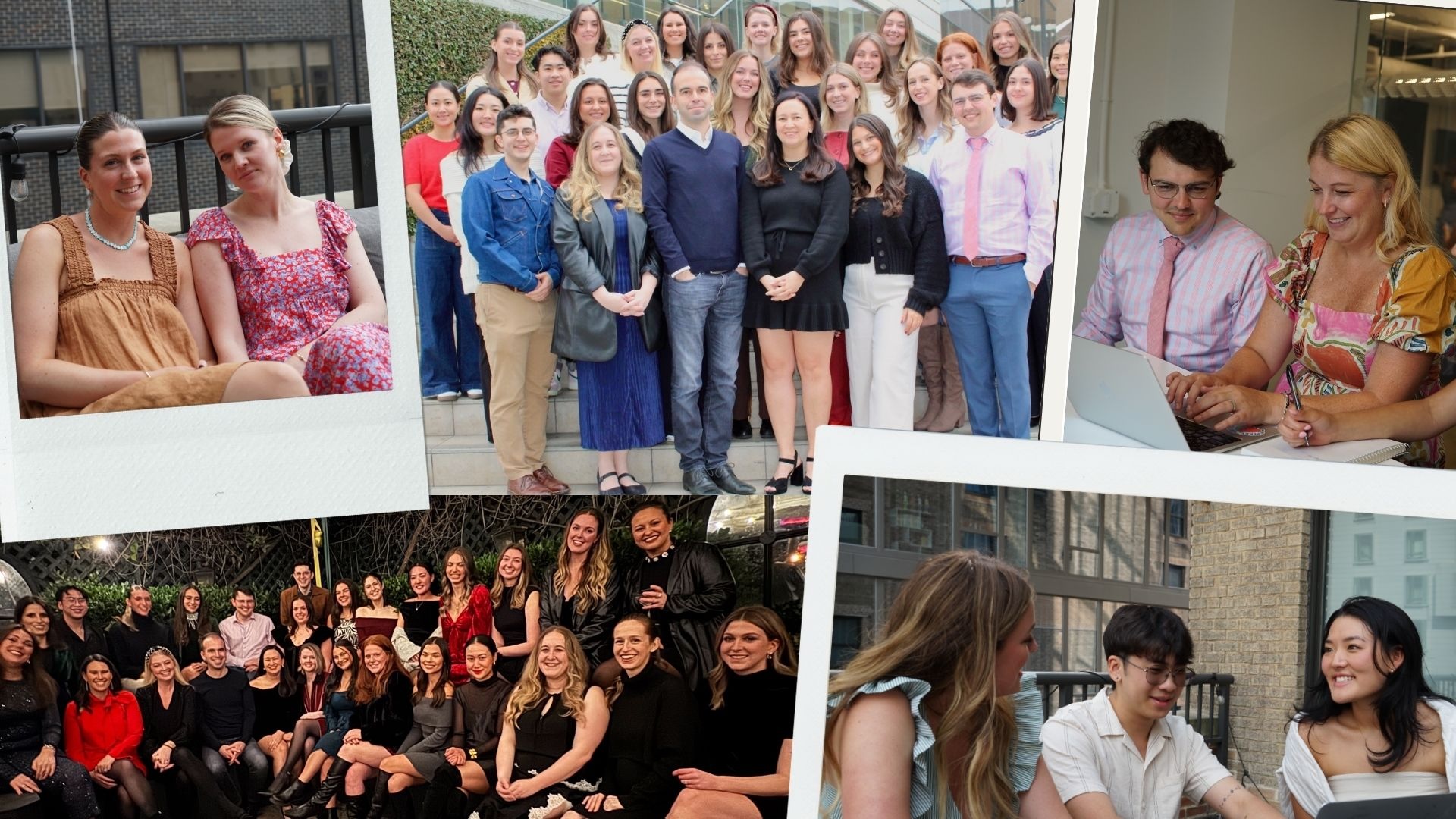Article
All Tech Voices: Nancy Wang from AWIT on Women’s Careers in Tech

Diffusion has launched All Tech Voices to help advance the debate on how increasing representation and understanding of diverse audiences can strengthen the technology sector. To open this new forum for discussion, we welcome Nancy Wang, Founder & CEO, Advancing Women in Technology, to discuss how if we want to overcome the setbacks in women’s careers from COVID, the technology industry must prioritize diversity and inclusion.
It’s no secret that the global technology industry suffers from an ongoing diversity problem. When it comes to gender diversity, women continue to be underrepresented compared to their male counterparts, especially in positions of leadership.
This was confirmed by Advancing Women in Tech’s The Future of Women study (2020), which surveyed technology workers in the US and the UK. Of the women who began their careers as software engineers, only 4 in 10 remain in the career field after a decade. Numerous respondents indicated that they lack the confidence in opportunities for promotion in male-dominated tech organizations: and with good reason.
Global data provided by the world’s ten biggest technology companies including Apple and Google shows that between 2014-2019 the proportion of women in tech increased by less than 2%; in the UK, according to a recent report from the BCS, female IT workers are still in a lower concentration in positions of responsibility with women accounting for only 13% of IT directors on average in 2019.
I founded Advancing Women in Tech (AWIT) to narrow the gender and diversity gap in technology leadership. AWIT gives ambitious, diverse professionals the resources to prepare themselves for leadership at each level of the career funnel.
Being a strong leader in the tech field requires networks, soft and technical skills, and experience. Our Real-World Product Management Specializations provide individuals who are early in their careers with the technical skills they need to succeed in the industry. We provide executive mentorship opportunities for mid-career professionals to assist them as they reach the next level, whether that be a role with increased scope and influence, or a board seat. And, for our executive ambassadors – tech leaders who are committed to advancing our mission – we provide a supportive network that connects to further leadership and advocacy opportunities. AWIT believes that tech’s gender and diversity gap largely exists due to lack of targeted, skills-based training, as well as executive mentorship – in other words, a lack of investment in actionable Diversity, Equity and Inclusion (DEI) initiatives.
What do we mean by actionable DEI? We are referring to initiatives designed not simply to pay lip service to the industry’s problems, but instead promote and provide tangible solutions. These can include intentional actions such as: encouraging male allyship in the workplace and boardroom; providing mentorship opportunities, including advice and help to progress; and adjusting employee review procedures to focus on measurable objectives rather than outdated concepts like ‘face time’ that penalize women in particular.
Bringing actionable DEI into the tech industry’s workplaces has become more crucial than ever in light of the Covid-19 pandemic. While the pandemic has impacted everyone’s working lives, women’s careers have been particularly negatively affected. According to The National Women’s Law Center in the US, women lost a total of 156,000 jobs in December 2020, while men gained 16,000.
Disappointingly, the Future of Work survey found that 51% of women in technology roles believe their opportunities for promotion have been affected by the pandemic (compared to 34% of men). Over one-third of respondents (39%) indicated that the pandemic affects their ability to maintain a competitive salary, and 41% indicated that they are currently considering leaving their current position.
Clearly this is not a time for lip service. We need change now, including but not limited to initiatives such as:
- Building flexibility into promotion schedules and recruitment, ensuring talent is assessed on their output and not presenteeism.
- Our survey showed there remains a significant gap in various measures of job satisfaction between men and women, including career growth trajectory (22% gap), skills-based training (19% gap), and promotion process (19% gap)
- Identifying, training, and securing sponsors and mentors (both male and female) who can help underrepresented leaders advance in their careers.
- A shocking 48% of the women we surveyed said they have to look hard to find mentoring help at work, and 18% think it’s hopeless to try to find help internally within their companies
- Establishing and providing resources for affinity groups: safe spaces where individuals can meet virtually at a time that’s convenient to them, especially those who have children and other family care duties.
Business leaders must be careful to not just talk the talk but also to walk the walk. By putting programming in place so that women can have access to crucial tools like peer mentoring groups or leadership sponsorship, technology organisations can signal to their employees that DEI is a strategic priority. These efforts lead to an increased retention and engagement of diverse leaders, bringing us closer to our goal of changing the face of tech leadership.
About Nancy Wang, CEO & founder, Advancing Women in Tech
Nancy Wang is the Director of Product and Engineering & General Manager at Amazon Web Services, where she leads P&L, product, engineering, and design for its data protection and data security businesses. Prior to Amazon, she led SaaS product development at Rubrik, the fastest-growing enterprise software unicorn and built healthdata.gov for the U.S. Department of Health and Human Services. Passionate about growing early-stage startups, Nancy is a Venture Partner for Felicis Ventures, where she works with early-stage data infra and security companies on their product-market fit, market segmentation, and product scaling.
Excited to advance more women into technical roles, Nancy is the founder & board chair of Advancing Women in Tech, a global 501(c)(3) nonprofit with 35,000+ members spanning three continents.
She earned a Bachelors of Applied Science from the University of Pennsylvania, where she serves on the Board of Directors for the UPenn School of Engineering Online.
About Advancing Women in Tech
Advancing Women in Tech (AWIT) is a 501(c)(3) non-profit dedicated to addressing the gaps in tech industry and aiding in the career advancement of more than 16,000 women and underrepresented groups across the globe. Focusing on skills-based workshops, advocacy and mentorship, AWIT actively bridges the gaps in management roles its members face going from mid-senior and director level roles into executive positions. Its two-pronged approach offers skills-based workshops and courses for AWIT members globally and virtually through the AWIT Institute for Career Acceleration, as well as a community of world-class operating and investment executives, called AWIT Ambassadors, who are passionate about inclusion and giving back to further the organization’s mission. AWIT is the proud recipient of AWS/Amazon’s 2020 Amazon in the Community (AITC) grant for our contributions to women and other minorities during COVID-19. To learn more and to join AWIT, visit www.advancingwomenintech.org.
About All Tech Voices
At Diffusion we believe dialogue is necessary to promote understanding of any issue, and understanding is the bedrock of meaningful action. There is thankfully a growing conversation on promoting diversity in tech and the complexities of turning rhetoric into reality. We take the view that there is no such thing as ‘too much’ discussion on this vital issue. In launching All Tech Voices, we want to help accelerate the debate. We hope to create a platform for diverse industry voices to share their experiences and to offer their road maps to embed greater diversity, inclusion, and influence for underrepresented groups in tech, to both strengthen the sector and prevent bias and discrimination.





